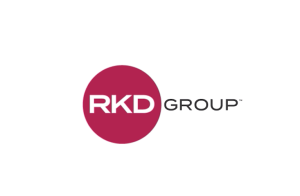Religious organizations, defined as houses of worship and other religious charities, have been bumped from the top spot by veterans’ nonprofits in the annual BBB’s Give.org research on donor preferences.
Slightly more than 1 in 4 (26.1%) American adults reported highly trusting religious organizations when the new data was developed in December 2022 and released today, as compared to 32% in 2017 when the study was launched. Religious organizations dropped to third behind veterans organizations (27.9%), and not-for-profit hospitals (27.1%), in the most trusted charity categories.
The data in the Give.org Donor Trust Report 2023: Donor Preferences Across Household Income Brackets is from a survey of more than 2,100 adults in the United States (with a separate section for more than 1,000 adults in Canada) and identifies significant shifts in trust for specific charity types. This report also looks at how participants from different household income groups vary in their donor trust outlook.
Generational age ranges used in the Give.org Donor Trust Report include Generation Z (18-24), Millennial (25-40) Generation X (41-56) Boomers (57-75), and Matures (76-93).
“Household income and the class divide can shape the way individuals think and feel about giving,” said H. Art Taylor, President and CEO of BBB’s Give.org. “Our latest report shows that household income affects how people report assessing charity trust, and other giving preferences.”
Via an email response to The NonProfit Times, Bennett Weiner, executive vice president and chief operating officer of the BBB Wise Giving Alliance, said that survey responses reflect donor perceptions and are not an objective measure of the accountability of the identified charity categories. “Understanding these public attitudes, however, can help identify areas where donors would benefit from wise giving advice of potential problem appeals, such as those from questionable veterans organizations,” he wrote. “In our experience, while there are many good veterans organizations that meet our standards, there are some that seek to take advantage of public sympathy and interest in this cause.”
Weiner also explained, “We have noticed that when public discourse about a cause area receives a lot of attention, we have seen increases in perceived public trust in those types of charities. It is possible that the spotlight on the war in Ukraine which started in 2022 might have reminded people about veterans and military service organization issues when this survey was conducted in December 2022.”
Report highlights include:
- In December 2022, the most trusted charity categories were veterans organizations (27.9%), not-for-profit hospitals (27.1%), religious organizations (26.1%), animal welfare (25.9%), and social service charities (24.9%).
- Religious organizations are still the most highly trusted charity category among Matures and Boomers. 34.8% of Matures report highly trusting religious organization, as compared to 18.4% of Gen Zers.
- 37% of participants with household income between $70,000 and $200,000 are open to solicitation, with 12.6% expressing a desire to be approached more often by charities and 24.4% saying they might be willing to give more if approached. By comparison, 29.4% of participants with household income above $200k report being open to solicitation, with 15.4% expressing a desire to be approached and 14.1% saying they might be willing to give more if approached.
- When asked what most signals that a charity is trustworthy, “accomplishments shared by the organization” was the most important signal across household income levels. Financial ratios were most important among high income households, with 50.0% of participants with household income of $200,000 or more picking financial ratios as a top trust signal, as compared to 32.9% among people with household income between $70,000 and $200,000, and 20.2% among respondents with household income below $70,000.
- Wealthier participants are more likely to “highly trust” 10 out of 13 charity categories. The three charity categories with higher trust among lower income households were veterans organizations, youth development, and police and firefighter organizations.
For a copy of the report, go to Give.org/DonorTrust.









